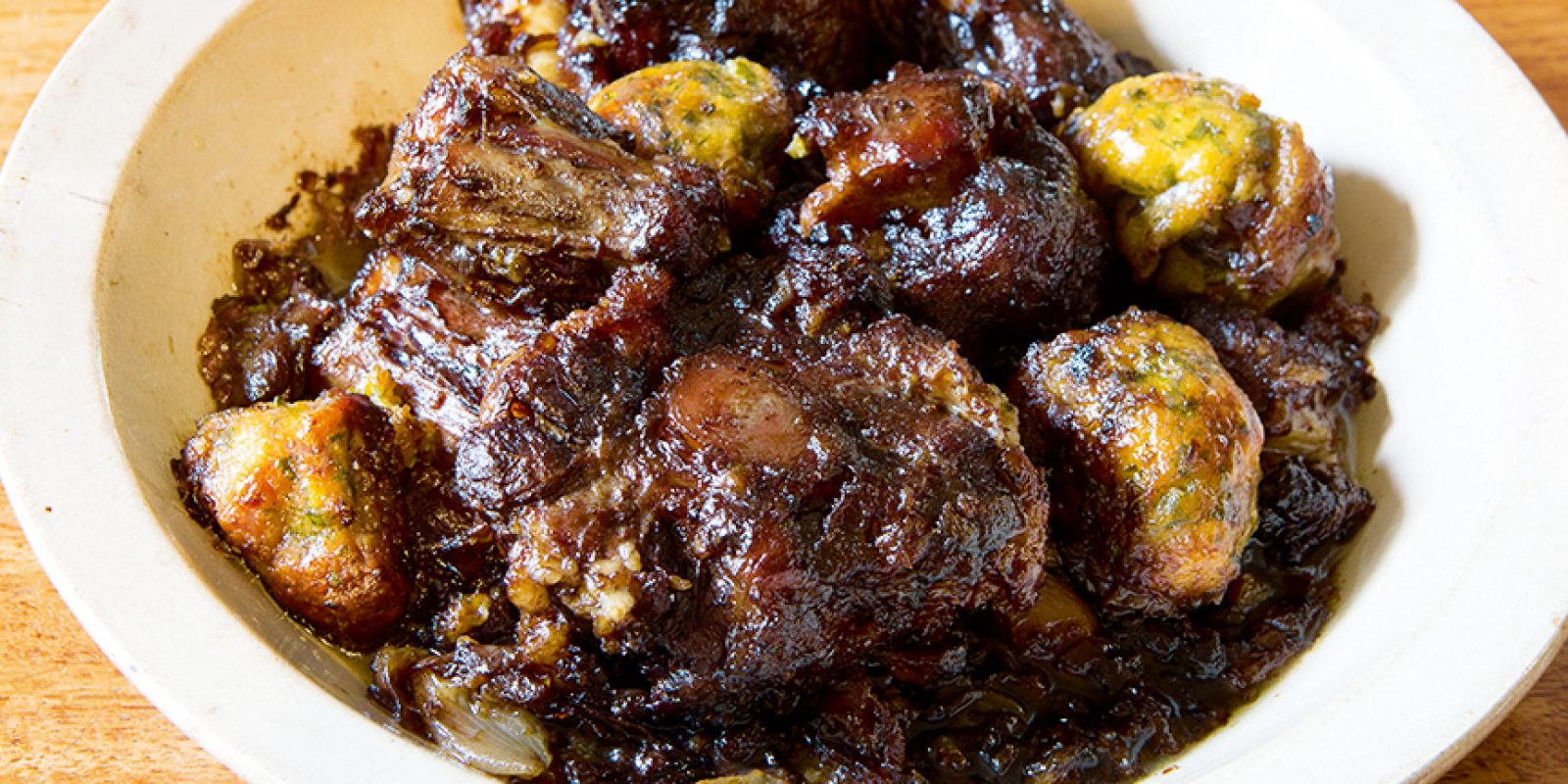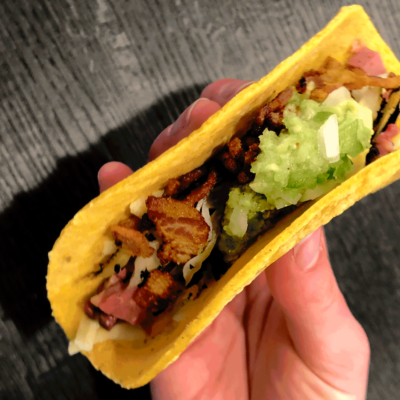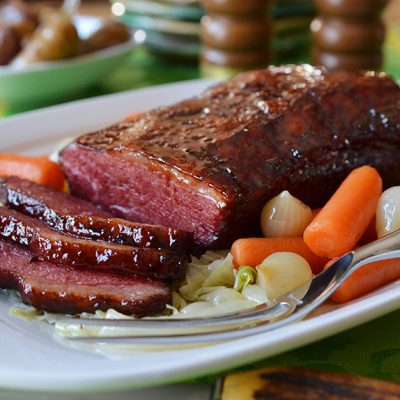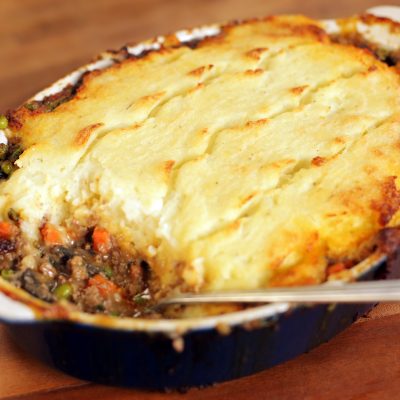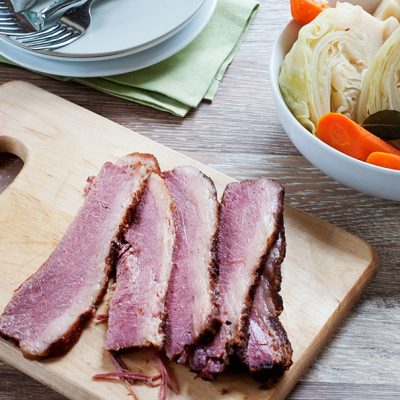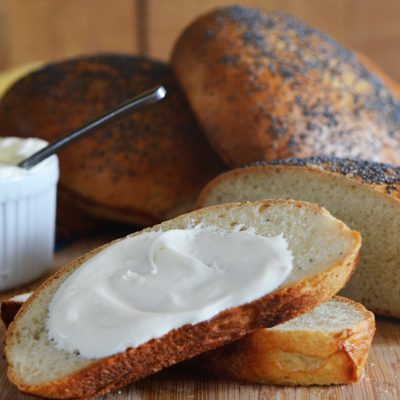Oxtail with Bread Dumplings
This is a rich and hearty dish – the juices from the oxtail make the gravy unique and if there is any left after your dinner on day one, you can certainly make a soup the following day when the richness will have done that wonderful ‘next day’ thing.
Recipe from Gubbeen Farm: The Story of a Working Farm and its Foods.
Irish Farmhouse Cooking from Gubbeen Farm
Ingredients
- 1 tablespoon beef dripping
- 5 1/2 lb oxtail, cut into chunks
- Salt and freshly ground black
- pepper
- 12 round shallots
- 4 tablespoons unsalted butter
- 2 large onions, sliced
- 12 garlic cloves
- 1 14oz jar pickled walnuts, drained, vinegar reserved
- 1 1/4 cups red wine
- 2 cups stout
For the bread dumplings
- 1 cup milk
- 1 teaspoon nutmeg, grated
- 5 or 6 white bread rolls
- Pat of butter
- 4 shallots, finely chopped
- 2 free-range eggs
- 2 bunches of parsley, stems removed and finely chopped (approximately 1 1/2 cups)
- Salt and freshly ground black pepper
- Flour, for dusting
Instructions
Preheat the oven to 130°C/gas mark 1 (275 F). Select a large, flameproof casserole pot with a lid, one that can accommodate all the ingredients. Melt the dripping, season the chunks of oxtail and fry over a medium heat. Because the chunks of tail are all different knobbly shapes and sizes they demand a fair bit of attention and will need turning and moving around the pan until the fat is a satisfying golden color and the meat is caramelized. Transfer the oxtail to a large bowl or pot and add the shallots to the casserole pot. Brown the shallots all over as best you can and put them in the bowl with the oxtail. Now add the butter, onions and garlic to the pot, turn the heat down a touch and cook with the lid on until soft.
When the onions are soft and yielding, add the drained vinegar from the jar of pickled walnuts, with the wine and stout. Bring to the boil, return the oxtail and shallots to the casserole, taste for seasoning, adding salt pinch by pinch as necessary, and a grind of pepper for good measure. Cover the pot and place in the oven for 4 1/2 hours, or until the oxtail is completely tender.
Meanwhile, make the dumplings. Gently warm the milk in a saucepan and grate in the nutmeg. Roughly tear up the rolls into a large bowl and pour over the warmed milk. Let them soak for about 30 minutes or until well softened.
Sweat the shallots in the butter. Add the beaten egg, the sweated shallots and the chopped parsley to the softened rolls and season well. Mix everything together—it will be a moist consistency—and then, using wet hands, form the dumplings to roughly the size of golf balls. Twenty minutes before the oxtail is cooked, remove the casserole from the oven and turn up the temperature to 220°C/gas mark 7 (425 F). Place the dumplings on top of the stew (they will soak up all that lovely fat), brush the surfaces with the beaten egg and return the pot to the oven with the lid off. The dumplings are cooked when they resemble freshly baked bread. If you have extra dumplings and don’t want to fill the stew pot entirely, bring a large pot of salty water to the boil, reduce to a gentle simmer (if it boils they will fall apart), carefully add the remaining dumplings, then simmer for 20 minutes. Gently remove from the water and let them sit for a while before frying in some butter. Allow the stew to cool for 10–15 minutes and serve with mashed swede and the pickled walnuts.
ABOUT GUBBEEN FARM
Gubbeen is a 250-acre, traditional farm on the most south-westerly tip of Ireland and is renowned for its award-winning cheese (called Gubbeen) and its smoked meats. This book encompases the four voices of the farm – Giana, Tom, Fingal and Clovisse – and what they do, from looking after their animals (poultry, pigs and cows), to cheesemaking, smoking meats and growing biodynamic vegetables.
Giana manages the dairy as well as keeping a keen eye on the poultry; Tom has worked the land all his life, following the old farming traditions of his forbearers; their son Fingal creates his own salamis, chorizo, hams and bacon in the Smokehouse while their daughter Clovisse, a cook, tends to the Kitchen Garden, feeding the family, guests and local restaurants with her salads, herbs and vegetables.
Nothing is wasted and the circle of life sustains the family whilst creating the highest quality products for speciality shops around the world. In this insightful book they share their stories, practical advice and delicious recipes for you to enjoy.

